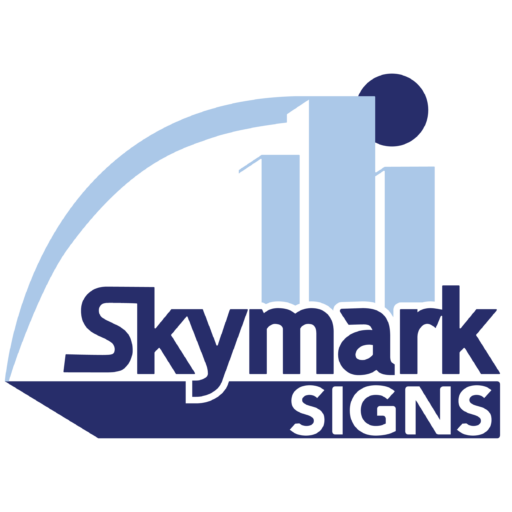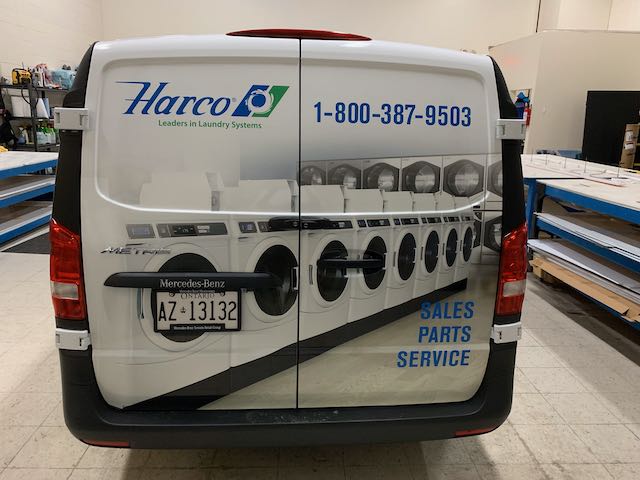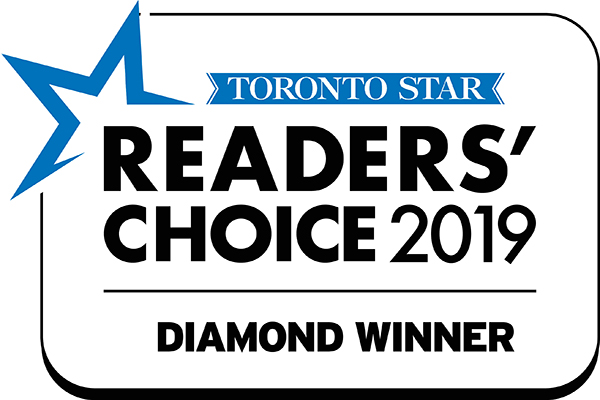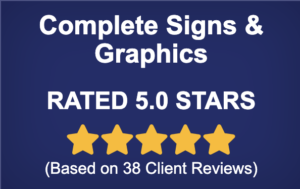Is your business ready for a car wrap? Is this a good investment? Will it ruin your paint? There are many questions surrounding wraps, from how effective they are, to how much they cost and many others in-between. In this article we make an effort to answer the most frequent questions our clients make when they come see us for the first time. We hope you will find it helpful!
Why a Vinyl Wrap a Car?
Wrapping a commercial van is a popular marketing technique that helps companies to promote their brand, products or services effectively. Here are some reasons why wrapping a commercial van is important:
- Increased visibility: Wrapped commercial vans can be seen by thousands of people every day, increasing brand exposure and helping businesses reach new audiences.
- Cost-effective advertising: Wrapping a commercial van is often more cost-effective than traditional forms of advertising, such as print, TV, or radio ads.
- Unique branding: A well-designed wrap can help businesses stand out from the competition and create a unique brand image.
- Long-lasting: Commercial van wraps are made of durable materials that can last for years, providing long-term exposure for the business.
- Flexibility: Wraps can be easily changed or updated, allowing businesses to adapt their marketing message as needed.
What is the Cost for Wrapping a Car?
The cost to wrap a car can vary widely depending on several factors such as the type of wrap, the size of the car, and the complexity of the design. On average, a full car wrap can cost anywhere from $2,000 to $5,000.
Type of wrap: The cost of a wrap can vary based on the type of wrap selected. A full wrap will cost more than a partial wrap, and a matte wrap will be more affordable than a glossy wrap.
Size of the car: The larger the car, the more material will be required to cover it, and the higher the cost will be.
Complexity of design: The more intricate the design, the more time and effort will be required to complete the wrap, and the higher the cost will be.
Quality of materials: Higher-quality materials will generally result in a higher cost, but will also provide better protection for the car and a longer lifespan for the wrap.
Are Magnets Worth It?
Magnetic signs can be a cost-effective solution for advertising a business on a car, but there are also some disadvantages to consider:
Brand Equity: Magnetic signs show your company’s logo but they also say that the vehicle is also the family car, that you are not a committed professional but have a side gig instead.
Durability: Magnetic signs can be easily damaged by wind, rain, and other weather conditions, and can also be dislodged from the car if driven at high speeds.
Limited exposure: Magnetic signs can only be used on metal surfaces and cannot be used on other types of vehicles such as vans or SUVs which these days are increasingly made of aluminium alloys.
Reduced visibility: Magnetic signs are about 24”x26” and can easily be obscured by other cars or objects on the road, reducing their effectiveness.
Poor image quality: The printing quality of magnetic signs tends to be poor, resulting in a low-quality image that does not accurately represent the business.
Removal: Magnetic signs can be easily removed and lost, and may not provide a permanent solution for advertising a business.
Are Spot Graphics or Decals a Good Substitute for Car Wraps?
Using decals to advertise a business on a car can be an effective way to reach a wide audience and promote a brand. Here are some of the benefits of using decals:
Durability: Decals are made of high-quality vinyl material that is resistant to weather and other environmental factors, ensuring that they will last for years.
Increased visibility: Decals can be seen from a distance and provide maximum exposure for the business.
Cost-effective: Decals are a cost-effective solution for advertising a business, especially compared to traditional forms of advertising such as print or TV ads.
Customization: Decals can be customized to fit any type of car, and can be designed to fit the specific needs and branding of the business.
Easy to apply: Decals are easy to apply and can be removed without damaging the car, making them a flexible solution for businesses with multiple vehicles.
Versatile: Decals can be used on any type of car, truck, or van, making them a versatile solution for businesses with multiple vehicles.
However you may be leaving money on the table if you opt for spot graphics instead of a car wrap. They do a perfect job for large companies that mostly deal with institutional business. But if your company relies on word-of-mouth and calls from your client’s neighbours you will get a lot more business with a wrap than the much smaller spot graphics.
Using decals to advertise a business on a car can be an effective way to reach a wide audience and promote a brand. With their durability, increased visibility, and customization options, decals are a cost-effective solution for businesses looking to advertise on the road. But for businesses that really want to get their message out there, wraps is the way to go.
I Can’t Decide Between a Partial Wrap and a Full Wrap
The choice between a full car wrap and a partial car wrap will depend on the specific needs and goals of the business. Here are some pros and cons of each option:
Full Car Wrap Pros:
- Offers maximum exposure for the brand, as the entire car is covered in the design
- Provides a consistent look and feel for the brand
- Can help protect the paint on the car from scratches and damage
Full Car Wrap Cons:
- More expensive than a partial wrap
- May not be necessary for businesses that only need to display their logo or contact information
Partial Car Wrap Pros:
- More affordable than a full wrap
- Can still provide significant exposure for the brand
- Can be a good option for businesses that only want to display their logo or contact information
Partial Car Wrap Cons:
- Does not provide as much coverage as a full wrap, so it may not be as noticeable on the road
- May not be as effective in creating a consistent look and feel for the brand
What are Some Vehicle Wraps Colours, Finishes and Options?
Because vinyl wraps are digitally printed, vehicle wraps come in a variety of colours, finishes, and options to suit different advertising needs and preferences. Here are some of the most popular options:
Colours:
- Solid Colours: A solid colour wrap is a simple and straightforward option that is easy to spot and attracts attention. We always recommend off tones, that may not be expected in your industry and will stand out more against your peers.
- Gradient Colours: A gradient wrap uses a blend of two or more colours to create a smooth transition from one colour to another. They are rarely well executed and we recommend staying away.
Finishes:
- Gloss Finish: A gloss finish wrap has a high-shine appearance that makes colours appear brighter and more vibrant.
- Matte Finish: A matte finish wrap has a non-reflective appearance that gives a sleek and modern look to the vehicle.
- Satin Finish: A satin finish wrap is a compromise between gloss and matte, offering a subtle shine while still maintaining a soft appearance.
Options:
- Perforated Vinyl: Perforated vinyl wraps allow for visibility through the vinyl material, making them ideal for use on rear windows.
- Reflective Vinyl: If your vehicle glows in the dark you can be sure potential clients can see you at all times of the day, doubling your exposure.
Does my Vehicle Need to Be in Good Condition for a Car Wrap?
It is best for a car to be in good condition before getting a wrap. A wrap can only improve the appearance of a car, but it cannot hide any existing damage. Here are some reasons why a car in good condition is important for a wrap:
Surface Preparation: A car that is in good condition will have a clean, smooth surface that is free of dents, dings, and other imperfections. This will ensure a flawless application of the wrap and a professional-looking result.
Wrap Durability: A wrap that is applied over an existing damaged surface is more likely to fail or peel prematurely, and may not last as long as a wrap that is applied over a clean, smooth surface.
Warranty: we do offer a warranty for our wraps, but this warranty may be void if the wrap is applied over an existing damaged surface.
What is the Process to Apply a Car Wrap?
Our process to apply a car wrap typically involves the following steps:
- We pre-measure your vehicle to make sure the new wrap will fit like a glove.
- Design and Printing: The design for the wrap is created and printed on high-quality vinyl material that is specifically designed for vehicle wraps.
- Lamination: The wrap is finished with a protective over-laminate that helps to protect it from scratches, fading, and other types of damage.
- Cutting: The printed vinyl is cut into the correct shapes and sizes for each panel of the car, then the vinyl is pre-masked.
- Installation day: The car is thoroughly cleaned and inspected to ensure that it is free of any dirt, debris, or imperfections that could affect the quality of the wrap.
- Application: The vinyl panels are carefully applied to the car, starting with the largest panels and working towards the smaller panels and details.
- Trimming: Any excess vinyl is trimmed away from the edges of the car, and the wrap is checked for air bubbles and other imperfections.
The entire process typically takes several days, depending on the size and complexity of the wrap. It is a complex process and we have professional wrap installers with experience and expertise in the process, to ensure that your wrap is applied correctly and will last for as long as possible.
What Are the Care Requirements for a Car Wrap?
Car wraps require proper care to ensure that they look their best and last as long as possible. Here are some of the most important care requirements for a car wrap:
- Wash Regularly: It is important to wash the car regularly to remove any dirt, debris, or pollutants that could damage the wrap. Use a mild soap and a soft cloth or sponge to avoid scratching the wrap.
- Avoid High Pressure Washers: High pressure washers can damage the wrap and cause it to peel or lift. It is best to avoid using high pressure washers on a wrapped car.
- Avoid Automatic Car Washes: Automatic car washes can be too rough for a wrapped car and may cause damage to the wrap. It is best to wash the car by hand using a mild soap and a soft cloth or sponge.
- Avoid Waxing: Waxing a wrapped car is not recommended, as the wax can damage the wrap and make it more difficult to remove in the future.
- Avoid Direct Sunlight: Direct sunlight can cause the wrap to fade over time, so it is best to park the car in a shaded area or use a UV-resistant protective film.
- Avoid Chemicals: Chemicals such as gasoline, oil, and solvents can damage the wrap and cause it to become discoloured or peel. It is important to avoid spilling these chemicals on the wrap.
Summary
Wrapping a commercial van is a smart investment for businesses looking to increase their brand exposure and reach new audiences. Whether used for delivery, transportation, or promotional purposes, wrapped commercial vans offer a cost-effective and long-lasting solution for promoting a brand.
The cost to wrap a car can vary greatly depending on size, design and other factors, but on average, it can cost anywhere from $2,000 to $5,000. It’s important to find a reputable and experienced wrap company to ensure the best quality and results for your investment as a company that cuts corner may cost you much more than what you saved.
Magnetic signs can be a convenient alternative for advertising some businesses on a car, but they have numerous limitations. Business owners should very carefully consider the disadvantages of magnetic signs before choosing this option for their advertising needs.
The choice between a full car wrap and a partial car wrap will depend on the specific needs and goals of your business. A full wrap will provide maximum exposure and a consistent look, while a partial wrap can be a cost-effective solution for businesses with limited advertising needs.
There are many different colour, finish, and options available for vehicle wraps, making it possible to create a wrap that meets the specific needs and preferences of your business. From solid colours to camouflage patterns, gloss finishes to perforated vinyl, there is a wrap option to suit any business and any advertising goal.
It is best to have a car in good condition before getting a wrap. A wrap can only improve the appearance of a car, but it cannot hide any existing damage. By ensuring that the car is in good condition, we can ensure a flawless application of the wrap and a long-lasting, professional-looking result.
Our process to apply a car wrap involves several steps, including surface preparation, design and printing, cutting, application, trimming, and finishing. By having a professional wrap installer with experience and expertise (like us!) completing this process, you can have peace of mind that the wrap is applied correctly and will last for as long as possible.
Proper care is important for a car wrap to ensure that it looks its best and lasts as long as possible. By washing your car regularly, avoiding high pressure washers and automatic car washes, avoiding hot air-dryers and waxing, avoiding direct sunlight, and avoiding chemicals, you can ensure that your wrapped car is well-maintained and continues to attract attention and promote your business brand. We hope that this article has answered some of your questions and please give us a call now to discuss your new wrap project!




